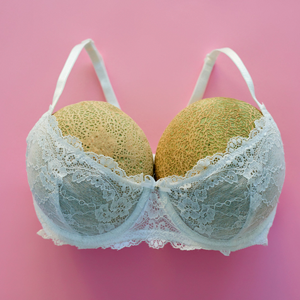
“My doctor told me that I have dense breasts. What does that mean exactly? And should I be concerned?”
Answer: It’s not an immediate cause for concern, but here’s what you need to know:
What are dense breasts?
Our breasts are composed of three kinds of tissue: glandular (the milk glands and ducts), connective (the fibrous tissue that surrounds the ducts and glands) and fatty tissue.
Read more: 6 weird facts we bet you didn’t know about your breasts
They’re considered “dense” when they have a lot of glandular and connective tissue and not much of the fatty kind. Only a mammogram can determine whether you have dense breasts. Neither your doctor nor you (during a self-exam) can tell from their size, shape, firmness or other factors, such as your BMI or weight.
What causes dense breast tissue?
The younger we are, the denser our breasts are, and as we age, our breasts tend to become less dense and fattier. This gradual change is due to a decline in our oestrogen levels as part of the natural ageing process, particularly during menopause.
Read more: 8 nipple symptoms that are totally normal
However, having dense breasts well into adulthood is common and affects about half of all women. And some people have a genetic predisposition to them – so if your mom had dense breasts, it’s likely you do too.
What you should know
Having very dense breasts raises two concerns. First, higher density has been linked to an increased risk for breast cancer, although the exact reason for that is unknown. Second, if you do have breast cancer, it can be harder to diagnose it in dense breasts because both non-fatty tissues and cancer appear white on a mammogram.
Read more: The real reason men are obsessed with your breasts
Be sure to tell your doctor if you have a family history of breast cancer – she might suggest alternative or additional tests like an ultrasound or MRI. In general, no matter your breast density, you can reduce your cancer risk by exercising regularly, limiting your alcohol consumption and maintaining a healthy weight.
Source: Dr Keri Peterson
This article was originally published on www.womenshealthmag.com
Image credit: iStock




 Publications
Publications
 Partners
Partners










